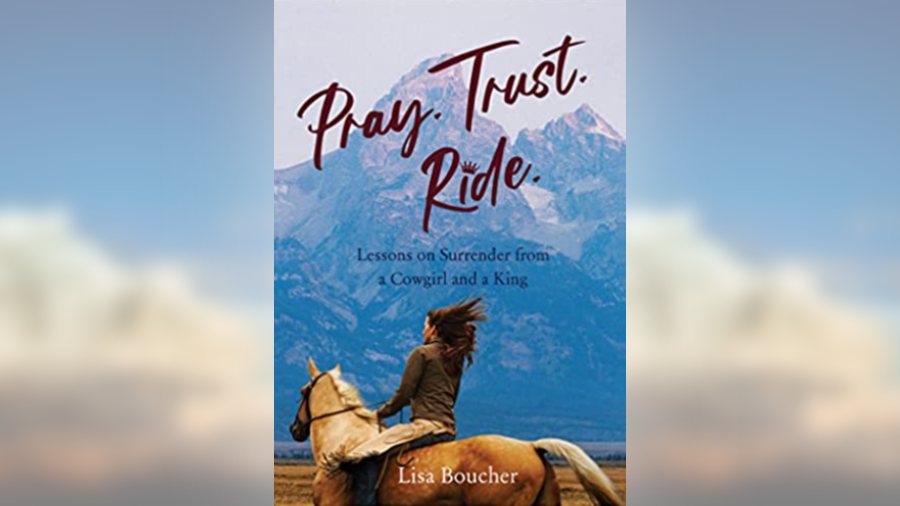
Lisa Boucher got sober 33 years ago. “And that started a spiritual journey that hasn’t stopped,” she told The Stream recently. “For the last four years, I’ve been primarily talking about recovery — and of course there is a huge spiritual component in that. But I really felt that God put on my heart that it was time to shift the conversation. And I feel like there’s so much God-bashing in the world that God is]calling regular, everyday people to start standing up and use their voices.”
Lisa’s newest book is Pray. Trust. Ride.: Lessons of Surrender from a Cowgirl and a King. The short book provides tips on how to surrender our will to God, as the only way we can know peace. “I think there’s been a lot of anxiety and depression and angst over the last two years, especially. So, I wanted [to write] a book that was shorter, that had shorter chapters that would have bite-size pieces that people could grab onto.”
We Must Surrender to God
Surrendering is difficult, Lisa admits. And there are plenty of people who try to control everything. When they realize they can’t, that frustration can lead to depression and anxiety. We can’t decide whether we get sick or have an accident, for instance. “These are the big things that really matter that we have no control over. Things just happen, so all of this trying to control the uncontrollable is just such a waste of time and energy.” Lisa continued:
You know, we allow ourselves to go down those dark alleys. Sometimes we can get really stuck and, and depression sometimes is self-manufactured when you start ruminating about old wounds or resentments or the past, these things that we can’t change. I mean, my childhood was rather difficult and at some point I had to let go of it and say, ‘Well, I think my parents did the best they could, even though it was not quite adequate in many ways. They did what they did and here I am,’ and I had to let it go. You can’t stay stuck in the past.
Prayers to Sustain Us
Lisa once made “Santa Claus” lists for God. “[I’d] say, ‘I want this, this, and this.’ … And then when I didn’t get what I wanted, there was all this disappointment and this very immature thinking of, ‘Well, God doesn’t care, then.’” Those prayers weren’t going to sustain her, she realized. “It’s easy to read the Bible, go to church, do whatever you’re doing in your Christian walk, but if you’re not applying principles of what you’re learning and hearing, what good is it? … But I think if we do persevere and apply what we read in the Bible and the things we hear from wise preachers, it does sustain us in the long run.”
For Lisa, the prayer of Jehoshaphat made all of this clear. “He did what he knew he could do, but then he let go and trusted God,” Lisa writes in her book. “He gave it all up to heaven and prayed, ‘Lord, God of our fathers, are you not the God in heaven, and do you not rule over all the kingdoms of the nations? In your hand is power and might, and no one can withstand you.’” (2 Chron. 20:6) “And that [last sentence] just really settled me.”
Lisa hopes readers will take away the knowledge that they can let go of difficult memories. “God wants us to forgive and let go of these resentments and past angers and hurts and the wounds of the soul. I want people to heal. That’s what I want. So, my takeaway is ‘You’ve got to learn to let go and the only way you’re gonna be able to let go is with God’s help.’”
Nancy Flory, Ph.D., is a senior editor at The Stream. You can follow her @NancyFlory3, and follow The Stream @Streamdotorg.

